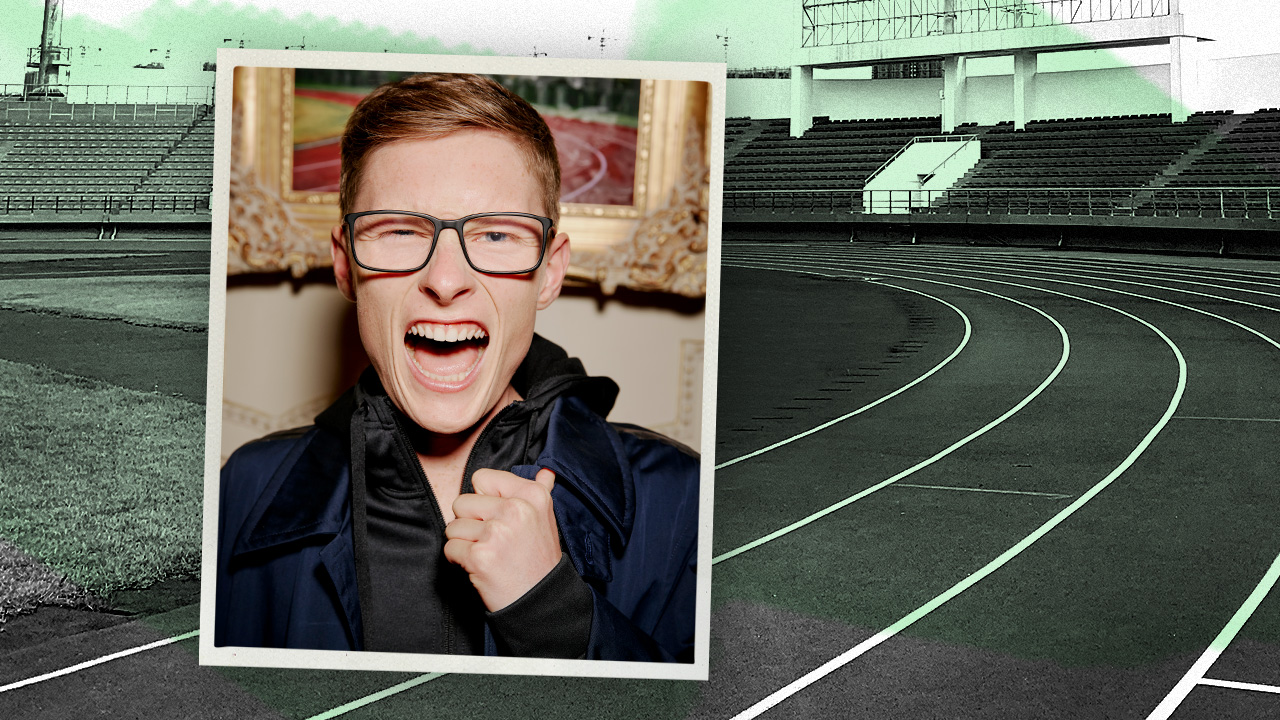News feed

There are many moments that mould the athletes of today; they are made up of pride, disappointment, triumph, and heartache. GRAZIA speaks to the Australian Olympic team on the moments, the people and the discipline required to finally step onto the starting line. For Paralympian Jaryd Clifford, his visual impairment is all he knows and it’s this adversity that has made the runner stronger. Here he appears to celebrate the power of sport to build community and change the world.
GRAZIA: When did you realise you could take your sport to a professional level? How old were you?
Jaryd Clifford: “When I was twelve I attended a talent search run by Paralympics Australia and tested well in the Beep Test. Weeks later, then thirteen, I was asked to attend a training camp at the Australian Institute of Sport. From the moment I became a teenager, I’ve been embedded in the high-performance system. I remember sitting in the offices of Athletics Australia when I was fifteen and being told I was earmarked for Tokyo, that these would be the Games where I could challenge for a medal. Almost half my life has been spent training for Tokyo and having the opportunity to show the world my life’s work would mean everything to me.”
How did you feel when you qualified for the Games in 2021?
JC: “I qualified for Tokyo by winning double world championship gold in 2019 over 1500m and 5000m for visually-impaired. Winning those races was a moment I will never forget. It proved to me that winning gold in Tokyo was possible. It gave me the belief to go with my lifelong dream.”
When you step out to the starting line, what is racing through your mind before you compete?
JC: “When I stand on the start line in Tokyo, knowing that the next few minutes could change my life and feeling the pressure of wanting to execute the performance that will justify all the hard work, I’ll remind myself that this is the moment I’ve prepared my entire life for. I’ll take a deep breath, and that’s when I’ll know if today will be the day.
“You can’t think too much. You have to trust your instincts. To be in the zone is like nothing else. Nothing else matters, nothing outside the feeling of running penetrates the consciousness. If I reach this state in Tokyo, then that’s when I will run the best race I can.”
In preparation for the Games, tell me three moments: Your proudest. Your most defining. Your lowest.
JC: “My proudest moment in preparation for these Games was becoming a Paralympian in Rio. I was 17 and I learnt so much from the experience that will live with me in Tokyo. Racing in the Paralympic Games is the pinnacle of my sport. I will never stop getting goosebumps when I hear Paralympian next to my name.
The most defining was meeting my best mate and training partner Tim Logan when I was 13. Since then, we’ve almost never been apart. He helped guide me to gold in the 5000m at the World Championships in 2019, and he’s there for almost every kilometre in training.
My lowest moment was when I found out the Tokyo 2020 Paralympic games had been postponed. When I found out at my kitchen table there was no panic or despair, only numbness. When you obsess over a single moment for the entirety of your teenage life, and then that moment disappears, there is no rationality or explanation; there is only hollowness. Sometimes, it feels as though my entire life has been dedicated to winning gold in Tokyo so having to wait another year for that answer has been excruciating. During this time my thoughts turned to the power of community and my Australian Paralympic family. We represent society in all its quirky complexity. We hail from every corner of our sprawling nation. Our backstories are stranger than fiction, and our personalities stretch the confines of convention, whatever that is. But we are a family, a community that always stands together.”
What does a week of training look like for you?
Monday: AM: 10km run & gym. PM: 6km run
Tuesday: AM: session (16-20km). PM: 8km run
Wednesday: AM: 16-20km run
Thursday: AM: Session (16-20km). PM: 8km run
Friday: AM: 10km run & Gym (sometimes rest day).
Saturday: AM: Session (16-20km)
Sunday: AM: 25-32km run
Example of my sessions:
– All start 5km Warm Up and conclude with 5km Cool Down
– Sessions can be on the track, grass, paths, or gravel.
– A recent session I did was 5x2km, with 90-second rest in-between
On your hardest days, what drives you to keep going?
JC: “On the tough days, and there are plenty of tough days, I think about my community back home. My family, my girlfriend, my running club that have given me so much, the Diamond Valley community that has been there every step of the way. I think of home: the hills, the trees, the people. I think about my training squad in Canberra, the people who know more than anyone how tough it can be. And, I think about my coach Philo, a man who would do anything for our group: he’s a coach, a training partner, but mostly he’s a mate. When it’s tough, I want to do it for him. I want to make him proud, and I want to show the world the product of his expertise.”
What has been your biggest challenge?
JC: “Many people expect that my biggest challenge has been growing up with a visual impairment. For me, however, it’s all I know. I know no difference. For me, I look at life like a challenge. Not in an exhausting way, but in what I can do with the opportunities I’ve been given. For everyone, life has its tough moments. We all live with adversity. Sport is my way of showing the world that my adversity has made me who I am, and I wouldn’t change it for the world.”
No matter the result, who will you be thanking?
JC: “My coaches over the years: Spiro Neofitou, Max Balchin and Lyn Davis, and then Philo Saunders have all played crucial roles in my career. Having Philo by my side for my world title will remain one of the most special moments in my career.”
The TOKYO 2020 OLYMPIC GAMES will run from July 21 to August 8. EXPLORE MORE ATHLETE STORIES HERE.









